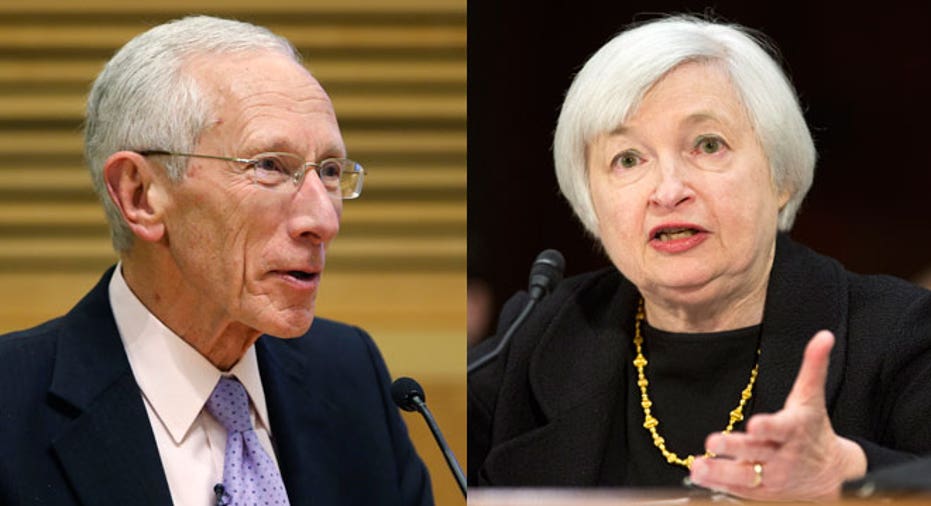Fed's Fischer: Rate Hike 'Likely' By End of Year

An influential Federal Reserve official on Monday said the central bank is “likely” to lift interest rates by the end of the year, sending an even louder and clearer message to markets that a rate hike is imminent.
“An increase in the target federal funds range likely will be warranted before the end of the year,” Fed Vice Chair Stanley Fischer said in prepared remarks at the Economic Club of New York.
Fischer is a close ally of Fed Chair Janet Yellen and both are viewed as inflation doves who favor an accommodative policy for helping the U.S. economy get back on track after the fallout from the 2008 financial crisis.
The doves have held sway on the Fed’s policy-setting Federal Open Markets Committee, initiating three rounds of bond purchases known as quantitative easing and keeping interest rates at near-zero since December 2008.
“The approach of liftoff reflects the significant progress we have made toward our objectives of maximum employment and price stability,” Fischer said, referring a strengthening labor market and projections that inflation is expected to start rising toward the Fed’s 2% target rate later this year.
Yellen and her colleagues have been signaling for months their desire to return Fed policy to normal, or one devoid of Fed intervention and with interest rates at higher levels.
Last week the FOMC shifted the language in its regular statement -- removing the word ‘patient’ -- to prepare markets for a rate hike possibly as early as the summer. Although Yellen cautioned that removing the word patient “didn’t mean the Fed would be impatient.”
Fischer seemed to be expanding on that sentiment on Monday. Reiterating that rate hikes are imminent, but that the Fed isn’t in a hurry to raise them and that economic data will determine the timing and trajectory of liftoff.
“Liftoff should occur when the expected return from raising the interest rate outweighs the expected costs of doing so,” Fischer said in his prepared remarks. “In deciding when that time has come, we will continue to monitor a wide range of information regarding labor market conditions, inflation, and financial and international developments.”
He added, “We anticipate that it will be appropriate to raise the target range when there has been further improvement in the labor market and we are reasonably confident that inflation will move back to our 2 percent objective over the medium term.”
Fischer also said the Fed will not increase rates in lockstep fashion as it did in the mid-2000s under former Fed Chief Alan Greenspan:
“One might even look back to the period from 2004 to 2007 and conclude that the FOMC will raise the federal funds rate by 25 basis points every meeting, or every second meeting, or every third meeting, depending on the date of liftoff. I know of no plans for the FOMC to behave that way,” Fischer said.
“Why not? Isn’t that what the calculation of optimal control paths shows? Yes. But a smooth path upward in the federal funds rate will almost certainly not be realized, because, inevitably, the economy will encounter shocks -- shocks like the unexpected decline in the price of oil, or geopolitical developments that may have major budgetary and confidence implications, or a burst of greater productivity growth, as the Fed dealt with in the mid-1990s,” he explained.



















